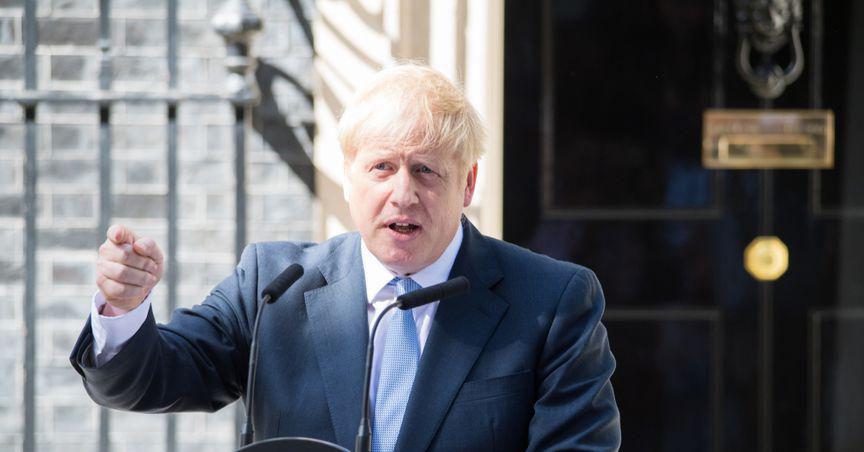Highlights:
- UK PM Boris Johnson has quit as PM after more than 50 cabinet ministers tendered their resignations.
- During his address from Downing Street, he said the UK must keep levelling up.
'No one is remotely indispensable, said Boris Johnson, as he resigned as the UK's prime minister after less than three years in office. Johnson, who led the Conservative Party to its biggest election win since 1987, said that the 'herd' at Westminster is powerful and 'when it moves, it moves'. The timetable to finalise a new prime minister will be announced next week, he said.
During his address from Downing Street, Johnson said he failed to convince his colleagues that changing the government would be 'eccentric'.
Notably, the quick downfall of Johnson came as dozens of resignations from cabinet ministers poured in just two days. On Thursday morning, seven more ministers tendered their resignations, all questioning the government's integrity.
There have been over 50 resignations from the cabinet, including former Chancellor Rishi Sunak and former Health Secretary Sajid Javid. One senior minister Michael Gove was sacked by Johnson after he asked the PM to step down.
Here are a few things to note amid all the political turmoil.
Who will be the next PM of the UK?
A timetable for choosing a new Conservative Party leader will be announced next week. However, it is not yet clear when Boris will leave Number 10. He might go when a replacement is found, something that happened in 2019 with Theresa May. The other option is that he resigns with immediate effect, which would require the appointment of an interim PM. In that situation, the present deputy PM Dominic Raab seems like an obvious choice. However, Rebel Tory MP Steve Baker has also said he's considering running for the prime minister. Other prospects include Liz Truss, Jeremy Hunt, and Ben Wallace.
Pound rises against dollar
With reports of Johnson's resignation, the pound sterling rose 0.5% against the US to $1.1976 to climb off two-year lows. The development indicates that there may be some more relief to the UK currency as more details emerge. It also reflects the traders' hopes that Johnson's exit from the office would bring political stability.
Markets move up
Not just the currency but the stock markets also reacted positively to the headlines of Johnson's imminent resignation dominating news outlets. The blue-chip FTSE 100 gained over 1.1% by 11:14 am GMT+1, while the mid-cap focused FTSE 250 climbed 0.9% during the day to hit a session high.
What lies ahead
Whoever becomes the new PM has a massive on their hand. Inflation is at a 40-year high and is expected to rise further later this year. The economy is contracting, and there are fears of recession. Millions of Brits have cut down on non-essential spending due to the cost-of-living crisis, and there are some who have even reduced eating, heating, and travelling as they cannot afford them anymore. Overall, the country is going through tough times.
It is also understandable that these issues cannot be fixed with a 'magic wand' but require careful planning and execution. Only time will tell what's in store for the UK.



